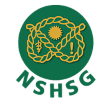|
|
CITB Temporary Works Co-ordinator |
The two-day Temporary Works Co-ordinator Training Course (TWCTC) is designed to help those who have responsibility for managing all forms of temporary works on site.
The course seeks to improve the knowledge of this role and the temporary works environment. The development of these courses was supported by several organisations, including the Temporary Works forum and the Health and Safety Executive. Temporary works are safety- and business-critical and require careful co-ordination. An accepted way of achieving this is through the adoption of the management process outlined in BS 5975:2019, which introduces the temporary works co-ordinator (TWC) as a key figure.
This course explains the role and its overall management context. Temporary works on both smaller and larger sites can be high risk activities. Therefore, understanding the essentials of good risk and safety management, as outlined in BS 5975:2019, is relevant for projects of all sizes.
The course gives emphasis throughout to the importance of communication, co-ordination, co-operation and competency (the 4Cs), risk management, safety and business relations, allowing the TWC to:
• understand the need for and duties of a TWC
• understand the role of others
• have a detailed knowledge and understanding of BS 5975 in respect of this role.
The TWCTC course will cover the following topics:
• the need for and duties of a TWC
• the other key roles involved in temporary works
• the use of BS 5975:2019 in relation to the role
• typical documents used in temporary works
• other legislation and guidance that interact with temporary works
• the importance of the 4Cs: communication, co-ordination, co-operation and competence
• the need for risk management.
There are no entry requirements for the TWCTC.
The qualification is attained by completing: 4 mandatory exercises; passing a trainer review, and passing an end-of-course exam. There will also be a workbook that is issued during the training that needs to be maintained throughout the course and onwards for CPD.
The paper consists of 22 questions, selected by CITB, covering all aspects of the course. This exam paper must be taken at the end of the course. Each paper has:
• 18 multiple-choice and/or multiple-response questions (each worth one mark; no half marks available)
• 4 free text questions (each worth one to three marks. Part marks are available but no half marks should be awarded).
The exam paper must be taken at the end of the course. The examination paper number will be notified when the course booking is accepted by CITB.
The exam pass mark is 78% (21 out of 27).
Please note: all delegates are required to produce photographic identification when attending all CITB courses. Suitable forms of identification are a valid passport, driving licence (including provisional) or UK cards.

















